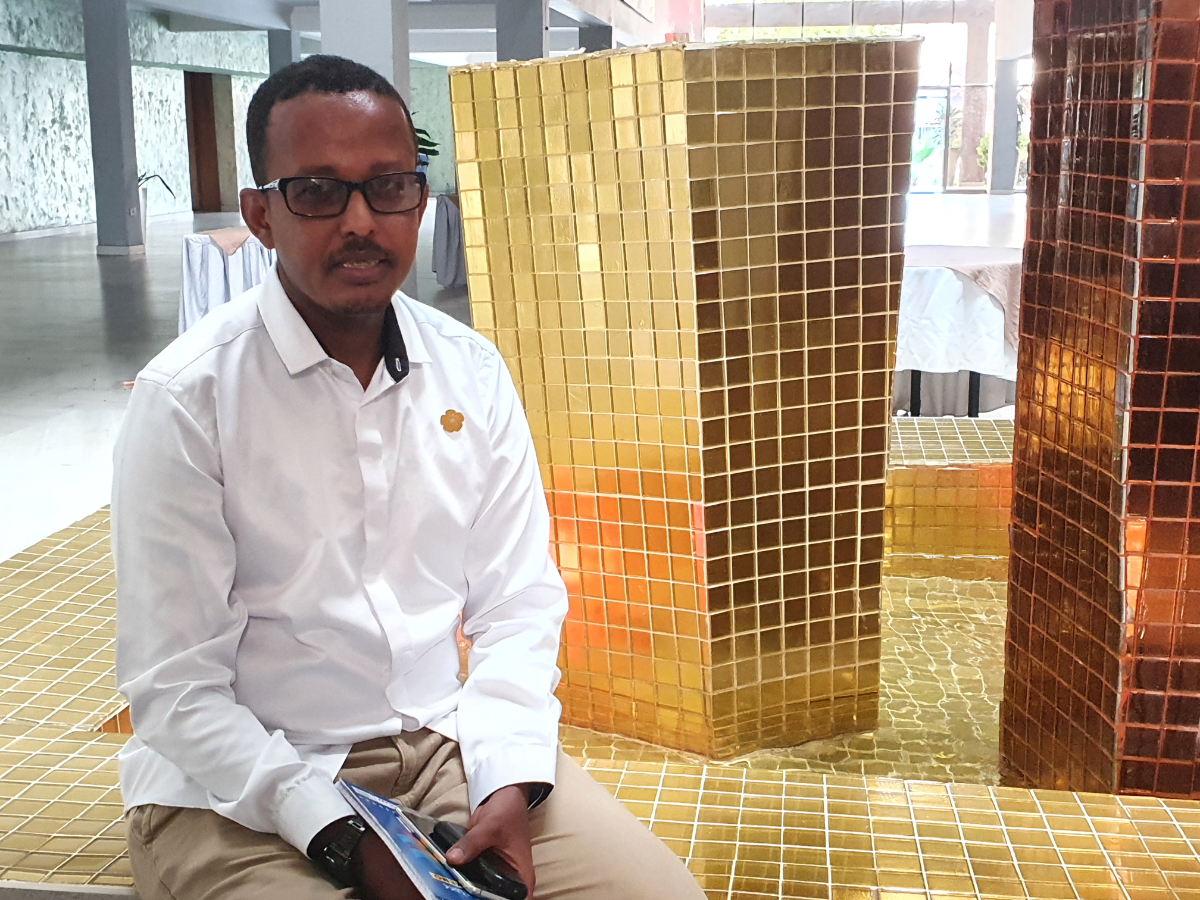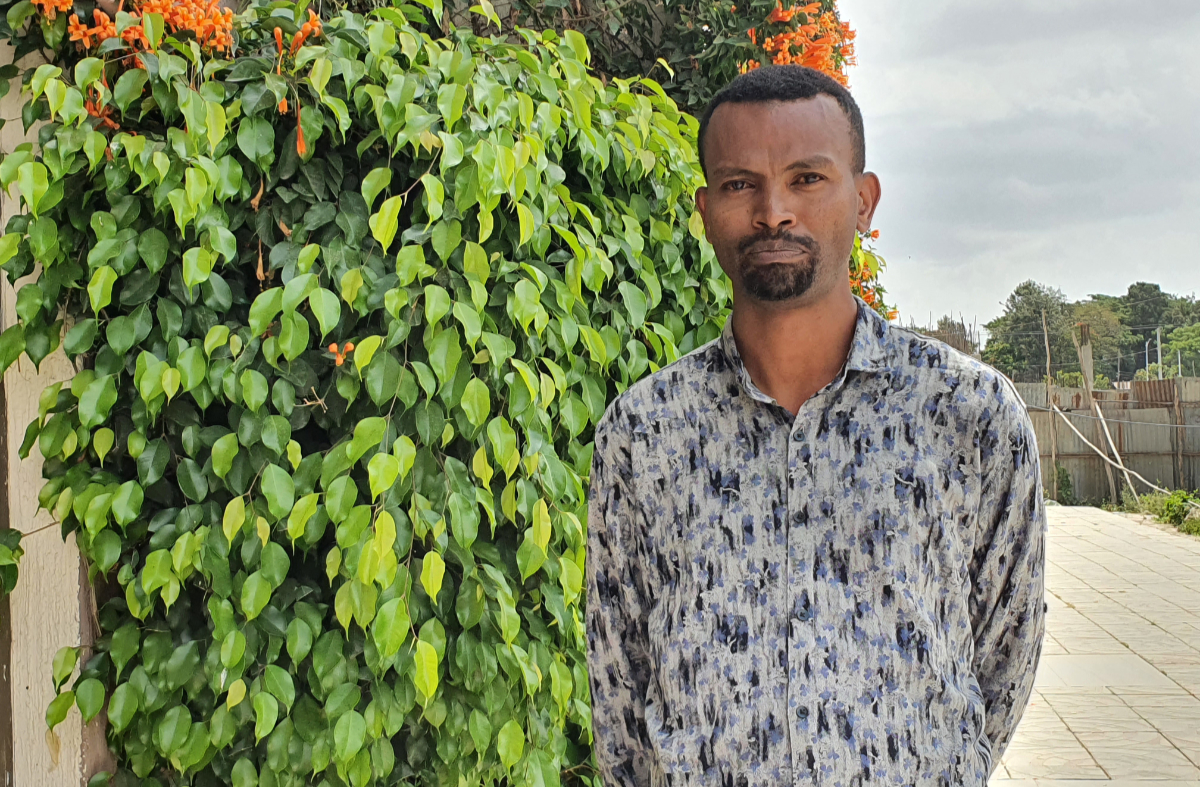Men engage to ensure women and girls access sexual and reproductive health rights in humanitarian settings in Ethiopia
Date:
By addressing harmful gender norms through promoting positive masculinity, engaging husbands, fathers and other men, we improve women’s status, and improve the quality of life for all. This was one of the key messages outlined during the advocacy workshop that was held in Ethiopia as part of UN Women’s programme on adolescent health rights in humanitarian settings in the Horn of Africa Region (POWER), which is supported by the Austrian Development Agency.
POWER aims to contribute to every woman, every child, and every adolescent girl, demanding her right to quality health services, particularly in humanitarian settings. The training focused on strengthening the participants’ capacity to advocate for and enhance SRMNCAH (sexual, reproductive, maternal, newborn, child, and adolescent health) service utilization among women and girls, deal with gender barriers and address gender inequality across all levels to access SRMNCAH services.
More than half of the participants were men: men from different provinces, representing different organizations – ministries and CSOs, educational background and family status. What was uniting them was their keen interest in the subject of gender-based violence and gender equality in humanitarian settings, extensive knowledge of cultural norms, experience working in the field of sexual and reproductive health, and unwavering commitment to challenging social norms to make their communities and the country a place where women and girls are safe and exercise their rights.
UN Women sat down for a brief interview with three participants and this is what they had to say.
Regen Mohammed, AYSRHR Officer, EngenderHealth, Ethiopia
There are various sociocultural barriers such as restrictive norms and stigma about adolescent and youth sexuality, harmful gender norms, and discrimination by communities, families, partners, and providers. Men have minimal knowledge about SRMNCAH. As a result, men don't support their wives to access SRMNCAH services. Generally, the culture is not supportive of utilization of some of the SRMNCAH services, especially family planning services. As a result, the community doesn't have a positive attitude towards family planning, and men and elders don't want their wives to limit the number of children.
For young women it is also hard to access services, again due to the cultural norms and perception. If a schoolgirl starts visiting sexual and reproductive health clinics, people will think “Oh, this girl started having sex already,” and therefore they are afraid to go and ask, they prefer to manage these issues in silence.

EngenderHealth understands and values the pivotal role men and boys play in promoting gender equality and ensuring positive SRH outcomes. We have programmes promoting positive masculinity and engaging men and boys in sexual and reproductive health awareness raising. We also believe parents should be educated and we have Parent-Teacher-Student counselor, who helps raise awareness on any issues that female students face, especially on issues related to SRHR, and we engage Ethiopian Youth Advisory Council volunteers. This person helps a lot with issues that are culturally sensitive.
I started my career as a teacher, and I saw challenges that young girls face and could feel their pain. This made me conscious about issues of menstrual hygiene, their health, and limitations that girls in our country face, and it was logical for me to join EngenderHealth as SRHR Officer. It is still sometimes difficult when my male friends laugh at me and my job. But I always challenge them back asking how they are helping their mothers, sisters, wives, and try to educate them about issues women face in Ethiopia and their role, as men.
I personally walk the talk by doing my equal part in household chores and taking care of my child. My wife is a nurse, and she also works. When I get home from work, I am the one who looks after our son: changing diapers, feeding him, washing clothes and cleaning the house. I believe it is necessary to support our wives so they can also strive in their careers.
Abebaw Bogale, Coordinator, National Alliance to End Female Genital Mutilation and Child Marriage
Lack of education, lack of resources, child marriage, harmful cultural norms- these are some of the barriers women and girls face when trying to access services and exercise their rights. During crises, women’s and girls’ rights need more attention, because other urgent priorities come first, the investments are channeled to mitigate crises and women’s situation get worsened.
Ethiopia is a big and diverse country. Cultural norms differ from one province to another. There is no one pill that will work for all.
However, I think there are few approaches that will be relevant to all provinces to address issues of child marriage, FGM, gender inequality and access to sexual and reproductive health.
First, we need to reach local communities and work with them, including but not limited to elders, traditional leaders, to tackle harmful practices there and to approach these issues holistically. One regular social worker who can be stationed in that community could help raise awareness on all aspect of life of women in the community: from healthy nutrition, to education and existing services (medical, legal). Just to give an idea, I once came to know that 500 women came to donate blood at IWSD event. This is the result of women having to get married early, bearing children as teen mothers, heavy workload at home, prioritizing their husbands’ nutrition, looking after children. These young women were simply exhausted. This experience struck me to the cord and made me think that we cannot support women and girls’ rights, if we do not look at these issues holistically: nutrition, lack of knowledge, heavy workload at home, and harmful practices that lead to early marriage and teen pregnancies and power imbalance.
It is important that we engage men in a meaningful way. We have to look at the interventions that will look at the root cause of women’s hindered ability to exercise their sexual and reproductive health and rights (SRHR)—gender inequality and changing men’s mindset in this area is important. Men should be part of the solution by sharing the household chores, doing their part in childcare, allowing their wives to get education and look after themselves. Above all, men should not decide to marry children.
Developing programs that effectively engage men to advance gender equality, challenge inequities, and promote access to SRHR services, may not be easy. But working in the communities, and step by step, by working together as one- government agencies, donors, partners, men and boys – we can make a meaningful change.
Lealem Birhanu, Team Leader, Ministry of Women and Social Affairs Ethiopia

To enhance women’s access to services, we need a multi-sectoral approach where different ministries and departments address issues holistically because issues are interlinked. UN Women has been instrumental in bringing us together and building platforms for us to collaborate, to ensure that every woman, every girl in refugee camps and host communities know of their rights and can freely exercise them.
One of the sessions that we are tackling today is engaging men and boys. Evidence shows that the work with men and boys in the context of sexual and reproductive health can bring transformative results. Together with UN Women, through this project we are working to remove structural, sociocultural and individual barriers, by making sure we have policies in place, by working with communities to minimize stigma and harmful gender norms and by educating women and communities about SRMNCAH, and dismantling myth and misconceptions around family planning and gender-based violence.
The Advocacy workshop was part of the POWER programme implemented in Uganda and Ethiopia – countries that host most of the refugees in the Horn of Africa. It focuses on three outcomes specifically in refugee camps and host communities: ensuring there are frameworks that take into consideration women’s and girls’ access to SRMNCAH services in humanitarian settings; improved gender norms and practices; and empowered women and girls to exercise their rights to services. Education, awareness raising and community work in refugee camps and host communities are critical elements of the programme. The programme is supported by the Austrian Development Agency.